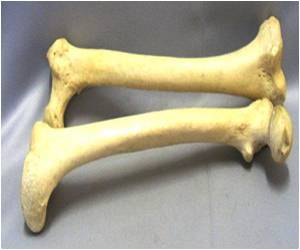The next time you sabotage your efforts to get back on track after bingeing on an extra scoop of ice cream blame the brain, says a new study.
The next time you sabotage your efforts to get back on track after bingeing on an extra scoop of ice cream blame the brain, says a new study.
A new study, from UT Southwestern Medical Center, has suggested that fat from certain foods we eat makes its way to the brain. Once there, the fat molecules cause the brain to send messages to the body's cells, warning them to ignore the appetite-suppressing signals from leptin and insulin, hormones involved in weight regulation.The researchers also found that one particular type of fat - palmitic acid - is particularly effective at instigating this mechanism.
"Normally, our body is primed to say when we've had enough, but that doesn't always happen when we're eating something good," said Dr. Deborah Clegg, assistant professor of internal medicine at UT Southwestern and senior author of the rodent study appearing in the September issue of The Journal of Clinical Investigation.
"What we've shown in this study is that someone's entire brain chemistry can change in a very short period of time. Our findings suggest that when you eat something high in fat, your brain gets 'hit' with the fatty acids, and you become resistant to insulin and leptin," Dr. Clegg said.
"Since you're not being told by the brain to stop eating, you overeat," the expert added.
Although it is known that eating a high-fat diet can cause insulin resistance, little has been known about the mechanism that triggers this resistance or whether specific types of fat are more likely to cause increased insulin resistance.
Advertisements
Based on this suspicion, her team attempted to isolate the effects of fat on the animals' brains.
Advertisements
Palmitic acid is a common saturated fatty acid occurring in foods such as butter, cheese, milk and beef. Oleic acid, on the other hand, is one of the most common unsaturated fatty acids. Olive and grapeseed oils are rich in oleic acid.
"We found that the palmitic acid specifically reduced the ability of leptin and insulin to activate their intracellular signaling cascades," Dr. Clegg said.
"The oleic fat did not do this. The action was very specific to palmitic acid, which is very high in foods that are rich in saturated-fat," the expert added.
Source-ANI
SRM












